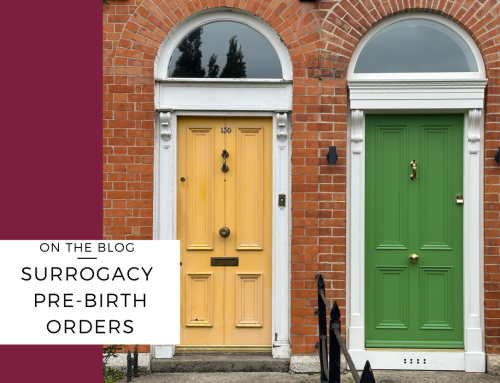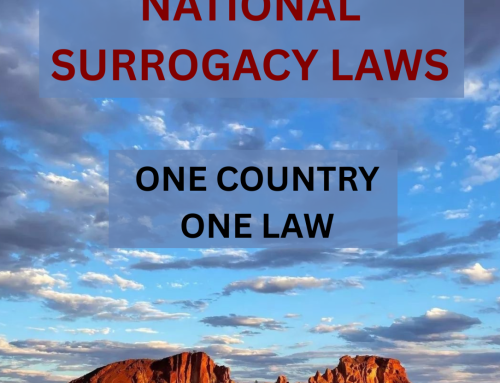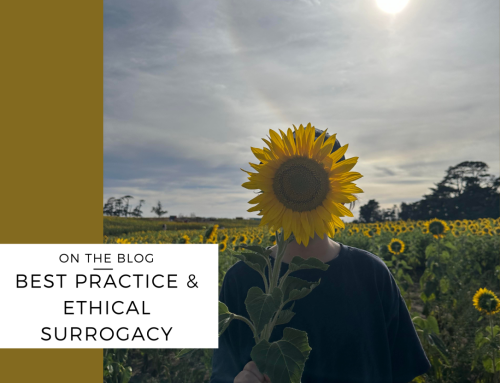Sperm donation options in Australia vary from friends and family, to online connections or clinic-recruited donors. If you watched 60 Minutes in 2019, you’d know all about Joe Donor – the American man who claims to have donated sperm to over 800 women, resulting in over 170 babies born (arguably, that means his success rate is less than 13%, which is about average and to be frank, there’s nothing super about his sperm). His method – either ‘natural’ or ‘artificial’ insemination – does not involve any formal agreement with the recipients (mostly single women or same-sex female couples), nor does it involve legal advice or medical assistance.
Joe Donor has since been named in a court case in the UK, as Robert Charles Albon, to protect women who may consider using him as a donor. Why was he in court? He was trying to seek parental responsibility for one of the children born from his donations, to have contact with the child and to have his name placed on the child’s birth certificate.
It’s not a unique thing to do (and Netflix’s The Man with 1000 Kids proves there’s others like old mate Robert), and many forums and Facebook groups are set up to facilitate a relationship between sperm donors and recipients in Australia. But what are the legalities and consequences of online sperm donation – for the recipients, donors and the donor-conceived people – that result from online arrangements?
In my experience as an egg donor, we didn’t require any written agreement or formal document to confirm our arrangement or intentions for our future relationships, or my relationship with any donor-conceived children. The IVF clinic had a bunch of consent forms we completed, with my partner and I signing our consent for the recipients to use the embryos as they wished. I have no parental rights or responsibilities for any donor-conceived children. I am not liable for child support. Under the Family Law Act, the woman who births the baby is presumed to be the legal parent, and her partner is also presumed to be the parent, regardless of the genetics of the child.
So how is sperm donation different? Well, there are a few different ways of conceiving via sperm donation, and the method can impact on the consequences. For example, utilising a ‘clinic-recruited’ sperm donor, usually involves the recipient knowing very little, and having no relationship, with the donor. In this case, the birth mother registers the birth, can list her partner as the other parent, and the donor details can be recorded on the Birth Registration. In Victoria, a Central Register exists where donor details are stored, so that the child can apply for information about their donor once they turn 18. The donor does not partake in any parenting role nor are they liable for child support.
A similar arrangement can exist with a known donor (such as a friend, family member or acquaintance), if it is facilitated through a clinic. Recipients and donors who use a clinic receive counselling about the arrangement, and have discussions about their expectations for future roles and relationships. A sperm donor in a clinic is treated the same as an egg donor. When the baby arrives, the birth mother and their partner are listed as the parents on the birth registration.
So what of those conceptions with a donor via artificial insemination at home? Well, this is where written agreement can be really useful. Whilst the presumption is that a birth mother and her partner are the legal parents, there can be questions about whether the donor is a donor, or a parent, unless there is a written agreement confirming the arrangement. Donor Agreements provide evidence of the parties’ intentions prior to conception, and can be used to register the birth and to ensure the donor is not liable for child support. Is the donor only a donor, or will he take on a parenting role? Will he be known as ‘Uncle’ and take on a special role in the child’s life, or stay completely out of it? Will the child visit him on weekends or not see him ever again? The variations on intentions and roles can play a huge part in how a court may see him and his role in the future. Whilst Donor Agreements are not enforceable, (and I’ve seen many a keyboard expert tell people not to bother with them), they can be crucial in protecting everyone and ensuring the relationships are clear and understood. The fact is, intentions and expectations can change, and relationships and roles can change. Is a donor just a donor, or can he be a parent? The High Court has recently determined this issue for one family, in the case of Masson and Parsons and Anor.
What about natural insemination – that is, conception via sexual intercourse? Well, this is a whole other kettle of fish. If the conception was achieved in the traditional way, then the ‘donor’ is, by law, a parent, and he is liable for child support, and needs to be registered on the Birth Certificate. If you are considering conceiving via natural insemination, or being pressured by a ‘donor’ to do it this way, please seek legal advice.
And what of the children? Donor-conceived children’s interests are often not considered deeply enough by everyone involved. They’re certainly not considered by Joe Donor, or Jonathan Jacob Meijer. Neither man really cares or considers the interests of the children born from their donations. Donor-conceived people want to know their origins, have a right to information about their origins, and should not be treated as secondary to the interests of the donor. What will these children say of the legacy of their conception when they grow up? How will the children conceived with donor sperm feel about having 100+ donor siblings, or not having a relationship with their donor?
As an egg donor, I underwent many hours of counselling and considered the ramifications of my donations from many angles. On the face of it, donation can seem like a lovely, altruistic thing to do. Even with the significant consideration and counselling, I still find that my feelings and thoughts about donor-conception are challenged and changed all the time. I don’t know how I will feel about the people conceived from my eggs in 5, 10 or 25 years. I don’t know how they will feel about me, or what role they will want me to have (or whether I’ll want to have it) when they are teenagers, adults or raising their own children. Donor-conception should not be a quick decision over some Joe Donor you met on the internet; it has life-long ramifications for the children, their families, the donor and their families.
If you are thinking of conceiving with the help of a donor, I urge you to consider your options, and seek legal advice before you attempt to conceive. This applies to potential sperm donors and recipients. Counsellors with experience in donor-conception can also be really helpful to help you decide the best way to move forward. For more information about donor conception, check out the resources at VARTA here in Victoria.
If you are entering a donor arrangement, you may like to consider setting expectations with your donor.
I have interviewed several fabulous people about donor conception, include donor-conception mother Gail Pascoe, Kate from VARTA, and egg donor Amber.
Read more about donor agreements and you can book a consult with me below.
Sarah has published a book, More Than Just a Baby: A Guide to Surrogacy for Intended Parents and Surrogates, the only guide to surrogacy in Australia.
You can find more information in the free Surrogacy Handbook, reading articles in the Blog, by listening to more episodes of the Podcast. You can also book in for a consult with me below.








